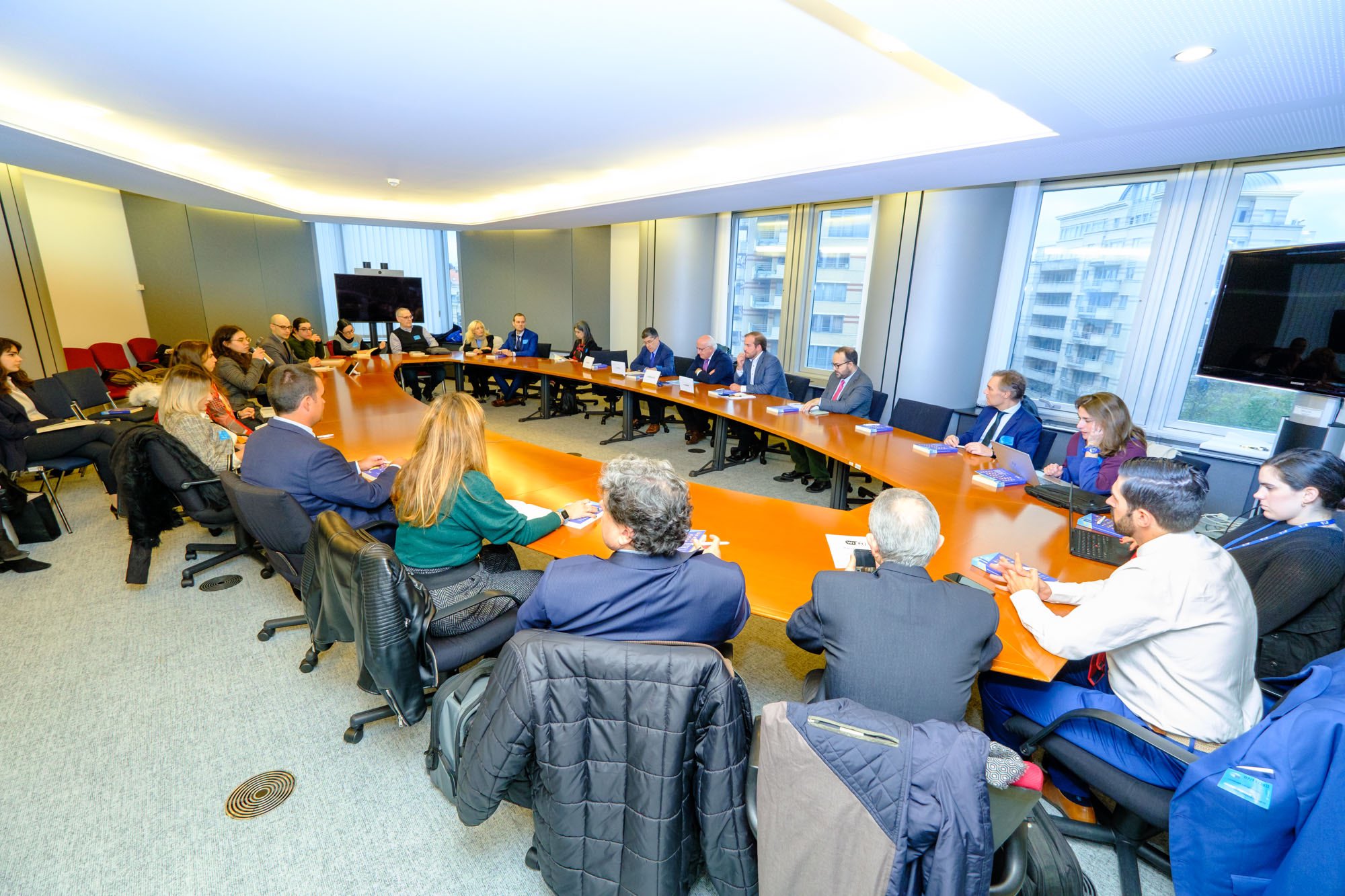MEETING WITH STUDENTS AND TEACHERS OF THE UNED IN THE EUROPEAN PARLIAMENT

On November 7 and 8, the National Distance Education University (UNED) held an international conference on the Rule of Law, Security and Defense in the European Union at its headquarters in Brussels.
As a complement to this Congress and directed by the Professor of Constitutional Law,
Carlos Vidal, the group of students and teachers had the opportunity to visit the European Parliament and hold various working meetings with MEPs from different political groups.
In the meeting with the MEPs of the parliamentary group of the European People’s Party (EPP), in addition to Zarzalejos, the Dutch Jeroen Lenaers, coordinator of the Committee on Civil Liberties, Justice and Home Affairs, and the Portuguese Paulo Rangel, president of the group working for legal and home affairs, and member of the Constitutional Affairs Commission.
During the meeting, MEP Lenaers explained that, just as it is necessary to comply with the rule of law conditions to access the European Union, it is essential that, once you are a member of it, you continue to monitor compliance with them conditions. For this reason, he welcomed the fact that, two years ago, the European Commission has begun to prepare annual reports on the rule of law in each of the Member States.
On the other hand, Rangel focused on the geopolitical consequences that Russia’s military aggression against Ukraine will have in the short and medium term. He explained what it means that Ukraine has obtained the status of a candidate state to join the Union and what it can mean in terms of accession of other Eastern European countries and the possibility of having a Union that evolves at different speeds. In his opinion, the European Union is not only a legal community, but a political community and, therefore, if there is political will, all options are open.
For his part, Zarzalejos stressed that one of the greatest threats to any Rule of Law is misinformation and the various interferences that it can suffer from third countries, which in most cases lead to the appearance of populist and demagogic discourses. . He concluded by pointing out two areas in which the European Union must focus to face the great challenges of the future: digitization, where the European Union already presents a very ambitious legislative agenda, and the need to create a solid ecosystem to deal with disinformation and interference in democratic political processes.
